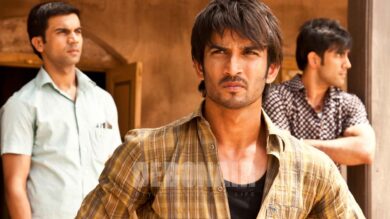Shefali Jariwala Was More Than “Kaanta Laga.” We Just Didn’t Look Close Enough.
The pop icon of early-2000s India is gone at 42, but her impact—on culture, courage, and how we remember women in the spotlight—still reverberates.

The thing about a remix is it sneaks up on you. You think you’ve heard the song before. And then, boom. It’s louder, flashier, wearing glitter eyeliner and swinging its hips like it owns the room. That was “Kaanta Laga,” circa 2002. That was Shefali Jariwala drenched in silver sequins, tossing her ponytail like a dare, rewiring what sexy looked like on Indian TV.
Shefali didn’t just enter pop culture. She kicked the damn door in.
And yet, when the news hit Shefali’s sudden death from a cardiac arrest at just 42, late on the night of June 27 it felt… off. Unfinished. Like the music cut too soon.
She was rushed to a hospital in Andheri, but it was already too late. Her husband, actor Parag Tyagi, was there grief pouring down his face in a way you don’t act for cameras. No dramatics, just devastation. Pure and quiet.
I can still picture that first time I saw her on a clunky desktop screen in a friend’s house, a bunch of us packed into the room like sardines, watching the video on loop. She wasn’t trying to be anyone else. That was the magic. She was just her uninhibited, a little dangerous, a lot magnetic. She made every auntie gasp and every teenager sit a little closer to the screen.
But what most people didn’t know then and honestly, most still didn’t even years later is that Shefali was carrying more than fame. She was carrying illness. Epilepsy had been part of her since she was 15. It shaped her career quietly, like a shadow in the wings. She’d later talk about it how her body didn’t always cooperate, how she chose her peace over parties, her health over hustle.
She could’ve chased every light. Instead, she chose windows.
She came back now and then. Nach Baliye, Bigg Boss 13 you’d catch glimpses. The same sly smile. The same steady fire. But she wasn’t chasing relevance. She was reclaiming herself. Not a comeback. A check-in.
When the tributes began pouring in Mika Singh, visibly shaken. TV faces like Aly Goni, Monalisa, Rajiv Adatia, Divyanka Tripathi the grief didn’t feel performative. It felt… stunned. Like a chapter was yanked out of the book without warning. Like we all suddenly remembered how much of ourselves lived in that song, that video, that moment in time.
Because Shefali wasn’t just a music video girl. She was a mood. A memory. The energy in a college canteen. The crush you didn’t know you had. The first time you realized pop culture could actually feel cool.
And now? Now there’s this space. A strange hush.
No official family statement yet. The post-mortem report’s still pending. But the facts almost feel beside the point now. What’s left is the texture of her legacy. The shimmer and stillness of a woman who gave us a flash of lightning and then quietly made peace with the storm inside her.
Shefali lived like someone who’d seen too much too soon and decided softness was the better story. And maybe we were too busy rewinding the beat drop to notice that all along, there was also a heartbeat—steady, brave, complicated.
She didn’t need a thousand credits. One was enough. “Kaanta Laga.” But if you ever listened close, beyond the remix, you’d hear a woman rewriting her own rhythm.
Now the song’s over. But damn, what an echo.
Rest easy, Shefali.
Stay updated with the latest in fashion, lifestyle, and celebrity stories—straight from the world of Debonair.
Follow us on Instagram, X (Twitter), Facebook, Youtube, and Linkedin for daily style and culture drops.





